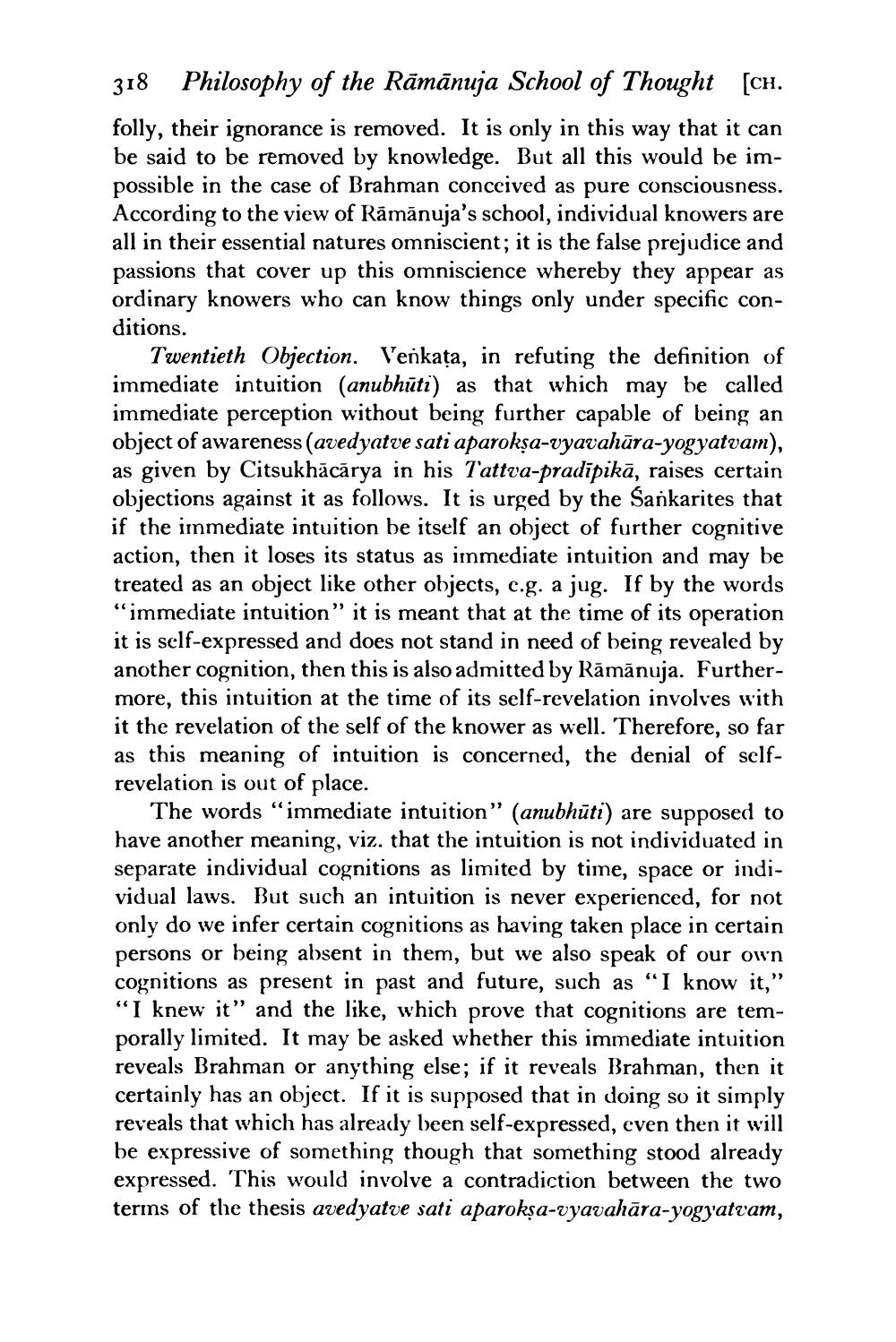________________
318 Philosophy of the Rāmānuja School of Thought [ch. folly, their ignorance is removed. It is only in this way that it can be said to be removed by knowledge. But all this would be impossible in the case of Brahman conceived as pure consciousness. According to the view of Rāmānuja's school, individual knowers are all in their essential natures omniscient; it is the false prejudice and passions that cover up this omniscience whereby they appear as ordinary knowers who can know things only under specific conditions.
Twentieth Objection. Venkata, in refuting the definition of immediate intuition (anubhūti) as that which may be called immediate perception without being further capable of being an object of awareness (avedyatve sati aparokşa-vyavahāra-yogyatvam), as given by Citsukhācārya in his Tattva-pradīpikā, raises certain objections against it as follows. It is urged by the Sankarites that if the immediate intuition be itself an object of further cognitive action, then it loses its status as immediate intuition and may be treated as an object like other objects, c.g. a jug. If by the words "immediate intuition” it is meant that at the time of its operation it is self-expressed and does not stand in need of being revealed by another cognition, then this is also admitted by Rāmānuja. Furthermore, this intuition at the time of its self-revelation involves with it the revelation of the self of the knower as well. Therefore, so far as this meaning of intuition is concerned, the denial of selfrevelation is out of place.
The words “immediate intuition" (anubhūti) are supposed to have another meaning, viz. that the intuition is not individuated in separate individual cognitions as limited by time, space or individual laws. But such an intuition is never experienced, for not only do we infer certain cognitions as having taken place in certain persons or being absent in them, but we also speak of our own cognitions as present in past and future, such as “I know it," “I knew it" and the like, which prove that cognitions are temporally limited. It may be asked whether this immediate intuition reveals Brahman or anything else; if it reveals Brahman, then it certainly has an object. If it is supposed that in doing so it simply reveals that which has already been self-expressed, even then it will be expressive of something though that something stood already expressed. This would involve a contradiction between the two terms of the thesis avedyatve sati aparokșa-vyavahāra-yogyatvam,




